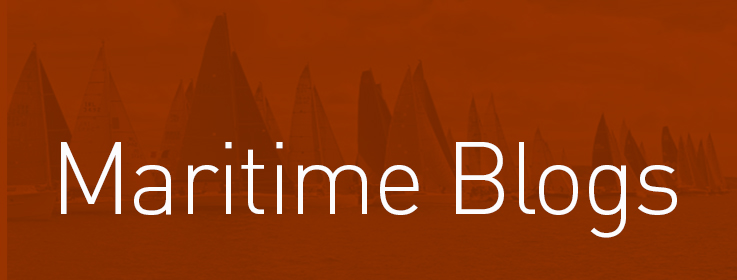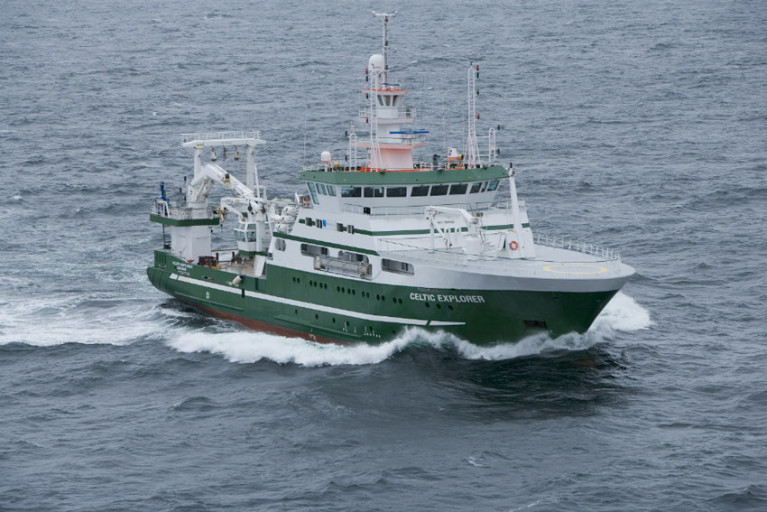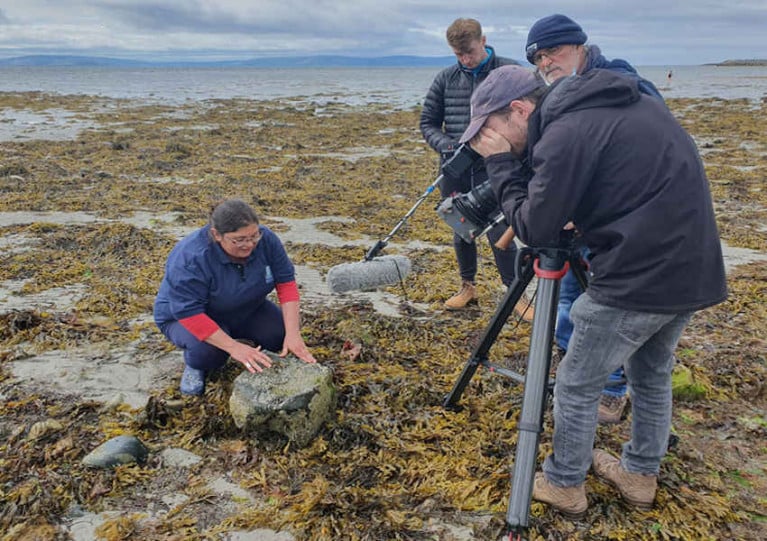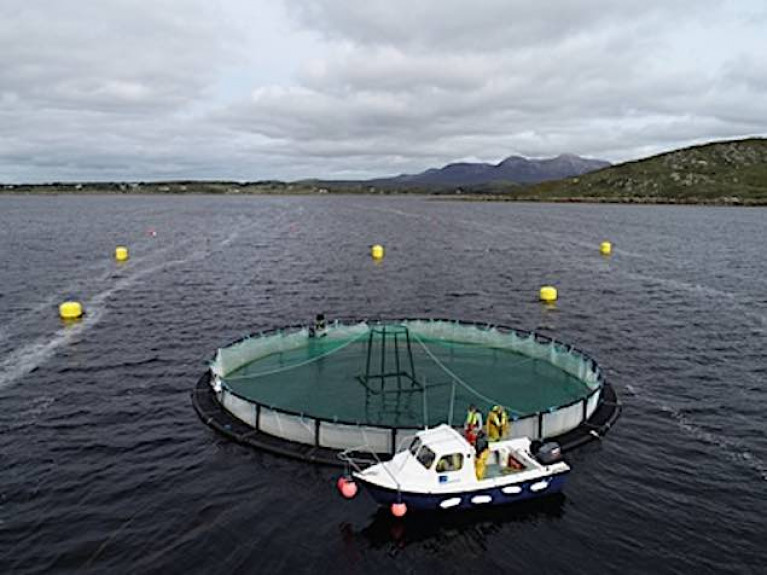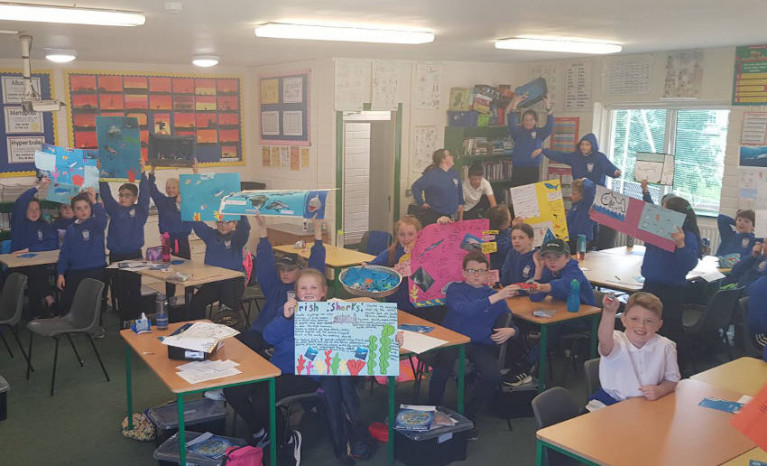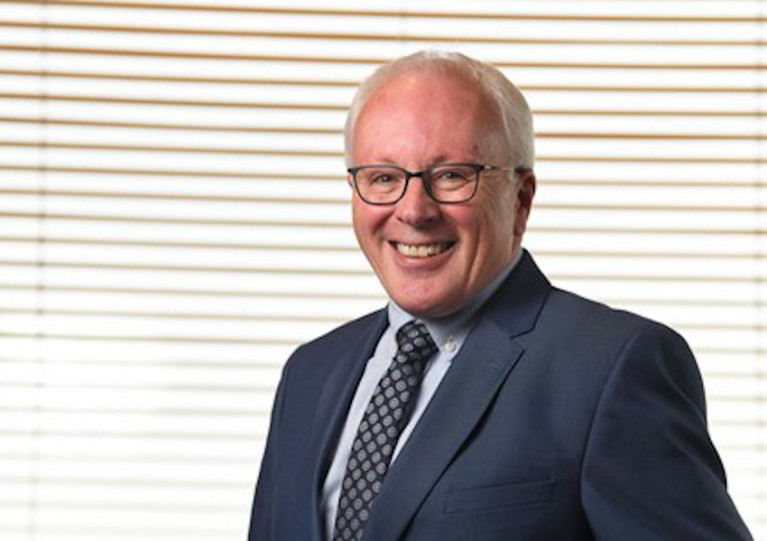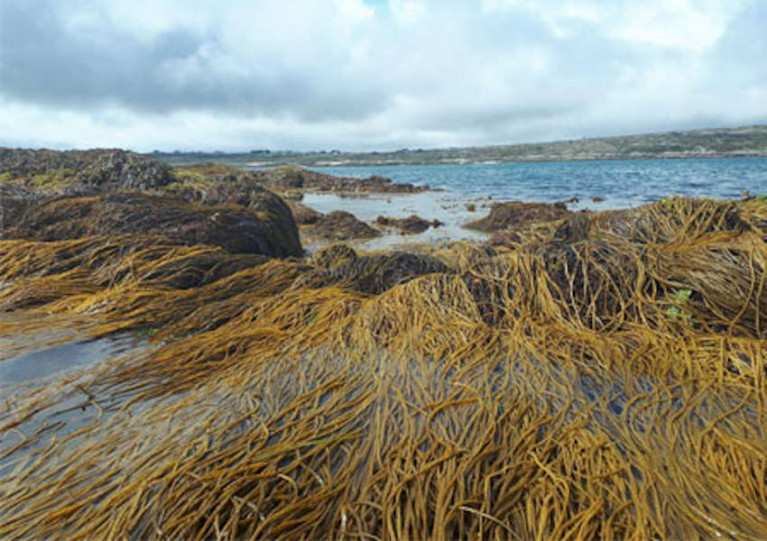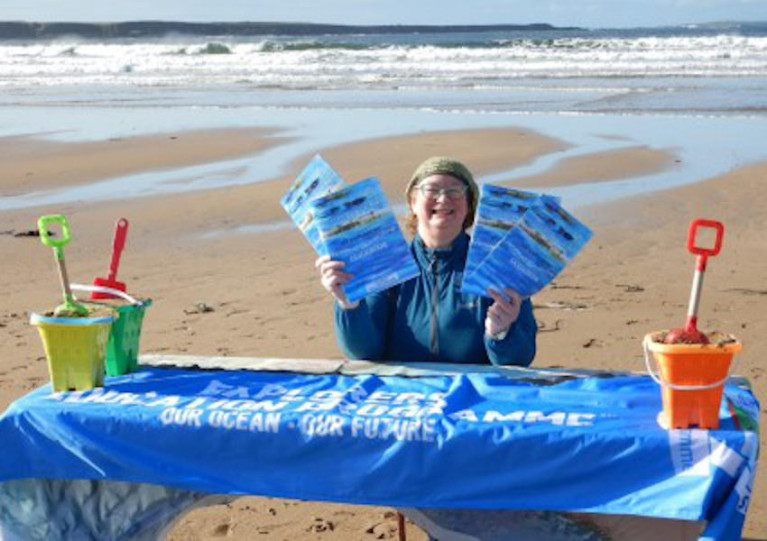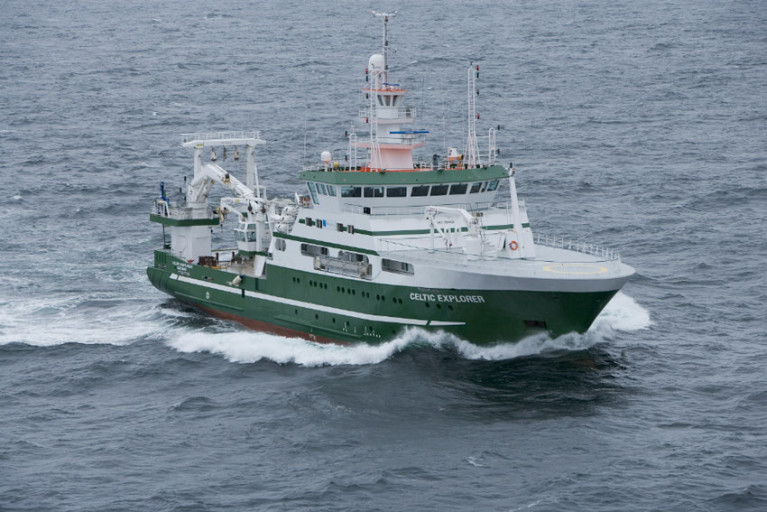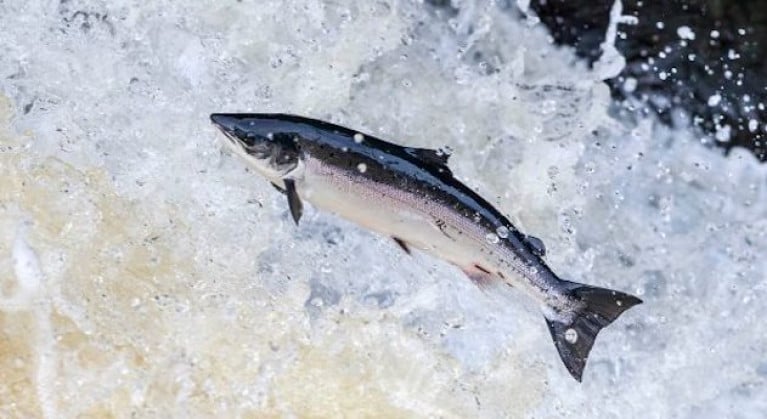Displaying items by tag: Marine Institute
Step Aboard the Celtic Explorer & More at Galway Science & Technology Virtual Festival
The Marine Institute and its Explorers Education Programme will once again be a part of the Galway Science and Technology Festival, which this year is a virtual experience for families on the weekend of 21-22 November.
Step aboard the Marine Institute’s marine science research vessel Celtic Explorer via a 90-minute livestream on Sunday 22 November from 11am to learn about some of its unique features, and why it is so important for fisheries research, climate studies and seabed mapping.
After the virtual show, jump aboard the RV Celtic Explorer and take a 3D virtual tour, or enjoy downloadable resources, videos and interactive activities that explore Ireland’s marine resource from the Oceans of Learning series.
And the weekend starts off with a trip to the seashore with the Explorers Education Programme team, who get ‘Wild about Wildlife’ as part of a special video series that’s been screened for schools this week as part of Science Week. Tune into the Galway Science & Technology Festival’s YouTube channel at 11am on Saturday 21 November (and again at 3pm on Sunday 22).
Marine Institute chief executive Dr Paul Connolly said: “The Marine Institute has supported the annual Galway Science and Technology Festival for many years, and is delighted to engage with parents and children through an online platform this year.
“The annual outreach event nurtures students’ interest and curiosity in science and technology subjects, and is also an opportunity for the Marine Institute, and our Explorers Education Programme, to raise awareness about the importance of our ocean and the work of our scientists.”
Meanwhile, the institute is also encouraging children to get creative and colour in a picture of the RV Celtic Explorer.
The winning entry will receive a LEGO City Ocean Exploration Submarine Deep Sea Set, and there are also two LEGO City Ocean Exploration Mini-Submarine Sets on offer.
To enter, download a copy of the colouring competition from the Marine Institute’s website, post a photo of your finished creation to social media and tag the institute on Twitter or Facebook. Winners will be announced on Friday 27 November.
Get Wild About Wildlife with the Explorers Education Team for Science Week
The Marine Institute’s Explorers Education Programme is interacting with children around Ireland among events for Science Week, which continues to this weekend.
Exploring the seashore will be the focus of the Explorers team as they share their Wild About Wildlife on the Seashore film and host Q&As with primary school pupils tomorrow, Wednesday 11 November.
Join them as they go on a journey to one of the most extreme places on earth where animals live. Find out about the seashells and their friends, including some of the tiniest periwinkles to top shells with the coolest spirals, feasting on seaweed.
Then head to the lower shore to help the team hunt down the carnivorous dog whelk — the shellfish which loves to make limpets into soup!
See the websites for the Cork Science Festival, Kerry Science Festival, Midlands Science, Galway Science & Technology Festival and the South-East Science Festival for more, and browse the full list of events on the SFI website.
Increasing the value and sustainability of aquaculture will be the focus of ASTRAL, a new EU funded research project, that involves the Marine Institute and partners across the Atlantic.
Ireland’s aquaculture sector produces 38,000 tonnes annually, providing a valuable food product as well as employment in Ireland’s coastal communities. Aquaculture is also central to providing opportunities to increase food security for the world’s growing population. Developing new technologies and processes in aquaculture helps ensure seafood is produced responsibly and sustainably.
The research project ASTRAL (All Atlantic Ocean Sustainable, Profitable and Resilient Aquaculture) aims to increase value and sustainability from integrated multi-trophic aquaculture (IMTA) production by developing new, resilient, and profitable value chains.
IMTA involves farming multiple, complementary species from different levels of the food chain together for their mutual benefit. The waste from one aquatic species are used as food for another species. The fish are fed, the shellfish filter out microscopic plants and organic content from the water and seaweed absorbs the minerals in the water. The natural ability for these species, shellfish and seaweed, to recycle the nutrients or waste that are present in and around fish farms can help improve the environment performance of aquaculture production sites. In addition, the approach also maximises the use of space and the diversity of species provides extra economic benefits.
IMTA will be an integral part of the ASTRAL project and will be investigated at four research sites in Scotland, South Africa, Brazil and the Marine Institute’s marine research site in Lehanagh Pool in Connemara, Co Galway. There will also be a prospective IMTA site in Argentina.
Over the next four years, the Lehanagh Pool research site will use the IMTA process to produce Atlantic salmon, lumpfish, European lobster, king scallop, sea urchin and brown and green species of seaweed. The production of these species together will allow the Marine Institute to test how well each species grows in the IMTA environment and will enable the research team to investigate new production methods.
The Marine Institute will also lead one of the work packages, which involves overseeing the five research sites in the ASTRAL project. The Marine Institute research team along with the other IMTA partners will identify best practice for IMTA, looking at animal welfare, biosecurity and fish health with a view to producing “Species for the Future” catalogue which will help pave the way for resilient, profitable, sustainable aquaculture production in the Atlantic in the future.
Pauline O’Donohoe, ASTRAL Project Coordinator at the Marine Institute said, “As a research organisation, the Marine Institute will assist with developing the techniques and assessing the benefits of IMTA. This collaborative project aims to support the aquaculture industry, by providing aquaculture producers with the tools to diversify their aquaculture species and practices.”
The ASTRAL project has received a budget of close to €8 million under the Horizon 2020 Programme. The ASTRAL consortium includes 16 partners from 10 countries around the Atlantic Ocean and is led by the Norwegian Research Centre (NORCE).
ASTRAL goals include achieving zero-waste aquaculture systems, as well as creating business models and tools to increase profitability. Potential climate risks and emerging pollutants such as microplastics and harmful algae blooms will be assessed, together with the development of innovative technology such as specific sensors and biosensors, with the final aim to provide monitoring recommendations to policymakers.
Sharing knowledge and capacity development are among the ASTRAL priorities, and to build a collaborative ecosystem along the Atlantic Ocean with industrial partners, Small and Medium Enterprises (SMEs), scientists, policymakers, social representatives and other relevant stakeholders.
The ASTRAL project will contribute to the implementation of the Belém Statement, an agreement signed by EU, Brazil and South Africa to develop a strategic partnership on marine research, and it will participate in building an All Atlantic Ocean Community.
Fifth and sixth class pupils at St Patrick’s National School in Craanford, Co Wexford had the opportunity to share their knowledge of sharks with RTÉ’s children’s news programme news2day this afternoon (Wednesday 4 November).
The youngsters recently took part in a project on the fearsome fish with the Marine Institute’s Explorers Education Programme, learning more about the sharks found in Irish waters and around the world.
Explorers outreach officer Padraic Creedon worked with teacher Jackie Cousins and her class as they were inspired by stories such as the discovery of a rare shark nursery 200 miles off the west coast of Ireland.
“Working with the Wexford class from my Galway base has been one of my highlights this year,” Creedon said.
“Seeing their work, from the shark frame on their classroom door to the detailed sculptures and art work of various Irish sharks created by the students, was fantastic.
“The children’s work showing the basking shark, which is found in Irish waters and the second largest shark in the world, was a particular favourite of mine.
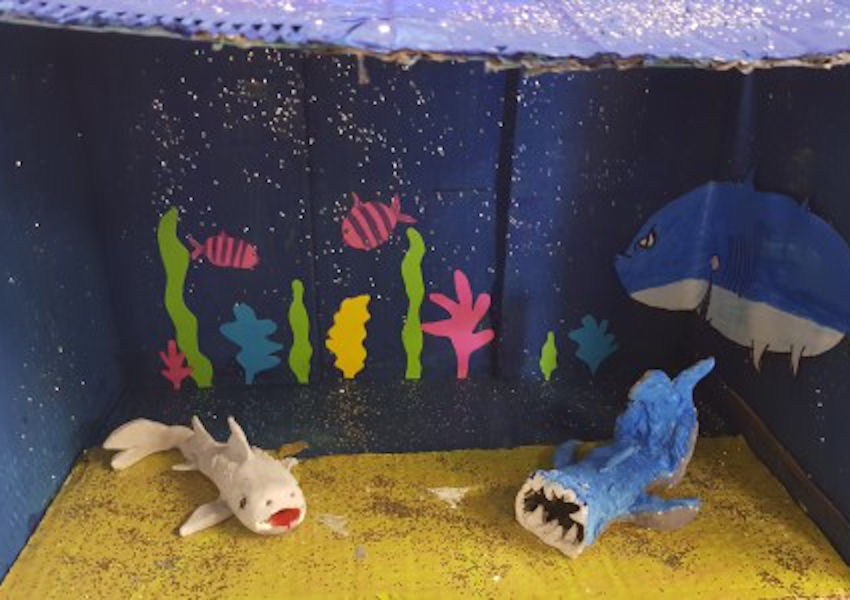 Shark diorama by pupils at St Patrick’s NS | Photo: Padraic Creedon
Shark diorama by pupils at St Patrick’s NS | Photo: Padraic Creedon
“This all highlighted the importance of engaging in ocean exploration and creating ocean champions at primary school level,” added Creedon, who also works at Galway Atlantaquaria.
“Connecting with the children on line and in the class with Padraic generated huge excitement for us all,” said their teacher Jackie Cousins. “The children's enthusiasm to learn about sharks helped us incorporate a range of subjects in the class from science and English to the arts.
“The Explorers approach with the class also gave the children a voice, where they were able to lead the discussion about sharks and what they wanted to learn.
“This sense of collective engagement as well as doing their own research opened up an amazing sense of discovery, where they have excelled and produced some incredible work, from writing facts and stories about sharks to producing a series of posters and artwork.”
Mícheál Ó Scannáil, the news2day presenter who interviewed the class in his home county, was also struck by the children’s enthusiasm for sharks and their ocean habitat.
“We had great fun in Craanford and the kids and Padraic taught me a lot about sharks. I still don't know if I’d hop in the sea with them, though!”
The segment featuring the pupils of St Patricks’s NS begins at 2m40s into today’s edition of news2day on the RTÉ website HERE.
Marine Institute’s Chief Executive Elected to ICES Bureau
The Marine Institute’s chief executive has been elected to the Bureau of the International Council for the Exploration of the Seas (ICES) at the recent annual meeting of its member countries.
Dr Paul Connolly — one of two ICES delegates for Ireland along with Dr Ciaran Kelly, also of the Marine Institute — was voted onto the executive committee of the ICES Council, its principal decision- and policy-making body, at the recent annual meeting of member countries on 21-22 October.
Marine Minister Charlie McConalogue was among those offering their congratulations to Dr Connolly on his new appointment.
“Ireland relies on the work of ICES to support the sustainable use of our seas and oceans and Dr Connolly’s election will further enhance Ireland’s contribution to this valued international organisation,” the minister said.
Marine Institute chairman Dr John Killeen added: “On behalf of the board, I congratulate Dr Connolly on his election by the member countries of ICES to this prestigious and important position.
“The Marine Institute has a long-standing relationship with ICES and regard it as an essential forum for our scientists to collaborate with their international colleagues to deliver impartial advice for our decision makers.”
Dr Connolly has served the ICES community since he was first appointed Irish delegate in 2000, when he took up his role as director of fisheries and ecosystems advisory services at the Marine Institute.
Dr Connolly was elected vice president of ICES in 2003 and served on its board until 2005. He then served as MCAP (Management Committee on the Advisory Process) chair from 2005 to 2008.
He was elected president of ICES from 2012 to 2015, and led the development of the ICES Strategic Plan (2014-2018) which was adopted by 20 member countries. Dr Connolly was appointed CEO of the Marine Institute in October 2019.
ICES is an intergovernmental marine science organisation, with a network of 6,000 scientists from over 700 marine institutes in the 20 member countries that border the North Atlantic.
Ireland joined ICES in 1925 and is a strong supporter of the organisation. The Marine Institute provides a broad range of dedicated marine scientists that make a valuable contribution to the work of ICES.
Through strategic partnerships, ICES works in the Atlantic Ocean also extends into the Arctic, the Mediterranean Sea, the Black Sea, and the North Pacific Ocean. Some 2,500 scientists participate in ICES activities annually.
ICES advances and shares scientific understanding of marine ecosystems and the services they provide, and uses this knowledge to generate state-of-the-art advice for meeting conservation, management and sustainability goals.
This year’s ICES Council meeting dealt with a broad range of marine issues including the impact of the Covid-19 pandemic on scientific data collection, analysis and advice delivery; on the finances of the organisation and on how ICES might contribute to the UN Decade of the Ocean (2021 to 2019).
Research Contracts Awarded to Develop Ireland’s Seaweed Resource
Three Irish consortiums have been awarded Small Business Innovation Research (SBIR) contracts by the Marine Institute and Enterprise Ireland to develop Ireland’s intertidal seaweed resource.
The Phase 1 ‘Challenge’ contracts will run over four months, and will involve scientific observations by satellite, drone and light aircraft to produce accurate estimates of seaweed distribution and biomass, and improve our understanding of Ireland’s coastal marine habitat and ecosystems.
Successful projects may then proceed to scaled-up demonstrations and wider regional resource mapping during 2021.
The move is in response to increasing demand at home and abroad for seaweed and seaweed-based products — from fertilisers and animal feed to cosmetics, medicines and food.
It is estimated that 32 countries actively harvest over 800,000 tonnes from wild stocks and natural beds annually. And in Ireland, the Marine Institute says commercial interest in the sector is growing.
Mick Gillooly, director of oceans, climate and information services at the Marine Institute, says: “With increasing awareness of the economic value of seaweed, mapping the extent of this resource is vital for sustainable management decisions.
“This is an exciting collaboration between industry, small business and research institutions, which will utilise the latest innovations and the expertise of Ireland’s national seabed mapping programme INFOMAR.”

Among the three consortiums in receipt of these contracts are four SMEs, two research groups and two industry partners.
Supported by IT Carlow, Aerial Agri Tech bring their drone mapping expertise from the terrestrial to the marine domain with industry partner Bláth na Mara (Aran Islands Seaweed).
Fathom, a business technology consulting company based in Dublin, has partnered with Earth and Ocean Sciences at NUI Galway and Arramara Teo to focus on the potential for satellite data augmented by ‘groundtruthing’ (direct observations on the ground).
Meanwhile, Techworks Marine, a provider of oceanographic solutions to monitor the marine environment, has teamed up with GeoAerospace — a geospatial information technology company with expertise in space-borne and airborne remote sensing, cloud platforms and machine learning — and with NUI Galway’s School of Botany and Plant Science.
Phase one will see the three groups develop their projects and feasibility plans. Pending evaluation in early 2021, either one or two consortiums will receive further funding to move into Phase 2A — eight months to demonstrate proof of scalability and lay out a path to commercialisation.
Successful partnerships will have the potential to develop a niche coastal habitat mapping service that could be used to tackle marine pollution, harmful algal blooms or invasive species.
Explorers Education Team is Creating ‘Ocean Champions’ in Co Clare
Creating ‘ocean champions’ around Ireland is the latest mission for outreach team members from the Marine Institute’s Explorers Education Programme.
The team are delivering a range of marine projects and seashore safaris in primary schools through blended learning, online activities and outdoor class visits.
This has involved adapting their favourite marine projects and developing new content for teachers and primary school children to use in the classroom.
Each month the programme will launch a new project and a series of new resources teachers and pupils can use. This month’s project is ‘An Ocean of Stories — My Explorers Personal Story’, created by Co Clare-based Explorers outreach officer Carmel Madigan.
The artist, author and habitat researcher says her creative writing project “focuses on wellbeing, creativity and reflecting on our connection with the ocean”.
She adds: “This is a great time to reflect and use our imagination and share our stories. These might include the day the sand got into my sandwiches to the drama of picking up a large seashore crab.
“We will be celebrating the children's work by sharing the stories on the Explorers social media pages. We will also be publishing a selection of our favourite submissions in an Anthology of Short Ocean Stories next year on World Oceans Day.”
Schools and students lacking in broadband access won’t be left out, either, as Carmel has produced a series of videos to inspire the children with their work with will be sent to teachers to share with their classes.
“We have really worked outside the box this term and the Explorer teams have done an amazing job coming up with projects that classes and schools can still take part in,” said the programme’s strategic education manager, Cushla Dromgool-Regan of the Camden Education Trust.
“This includes online engagement, personalised film messages and traditional letter-writing, to name a few. A huge volume of support materials have also been created for the teachers to use in class with the children including interactive short films, workbooks, fun facts and posters.”
Explorers weekly updates are posted on Facebook and Twitter. If you are interested in your class taking part in an Explorers project, contact your nearest Explorers outreach officer or the support services team at Galway Atlantaquaria for more via www.explorers.ie
2020’s Irish Groundfish Survey Gets Under Way
This year’s Irish Groundfish Survey (IGFS 2020) of the North, West and South Coasts of Ireland is set to commence today, Sunday 25 October.
Carried out by the Marine Institute, the IGFS is a demersal trawl survey consisting of around 170 fishing hauls, each of of 30 minutes’ duration, in ICES areas VIa, VIIb, VIIg and VIIj.
As part of the requirements for the 2020 survey, fishing will take place within a two-nautical-mile radius of indicated positions.
The survey will be conducted by the RV Celtic Explorer (callsign EIGB) which will display appropriate lights and signals.
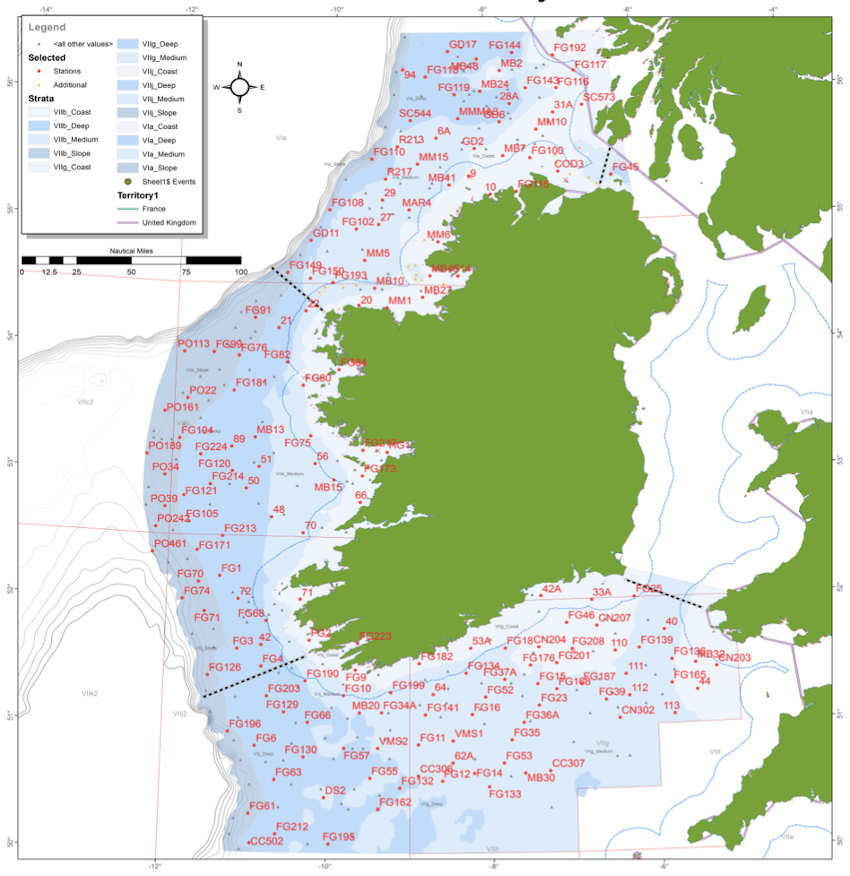
The vessel will be towing a high headline GOV 36/47 demersal trawl during fishing operations.
Co-ordinates and approximate locations of these hauls are included in Marine Notice No 48 of 2020, a PDF of which is available to download below.
The Marine Institute requests that commercial fishing and other marine operators keep a 2nm area around the tow mid-points clear of any gear or apparatus during the survey period between now and October and Thursday 10 December.
This survey follows the annual Irish Anglerfish and Megrim Survey which was conducted off the West, South West and South Coasts this past February and March.
Captive Salmon "Not a Substitute" for Wild Spawners, Research Suggests
New research led by scientists at University College Cork (UCC) which uses genetic fingerprinting techniques indicated that captive-born salmon are far less successful at reproducing as wild salmon spawning in the same river.
“We looked at the lifetime reproductive success of salmon spawning naturally in the wild,” joint lead author of the study Ronan O’Sullivan of UCC ‘s school of biological, earth and environmental sciences said.
“ So for each adult fish that returned to the river from the sea, we counted up the total number of offspring they produced across their lives that themselves survived to spawning age,” he said.
“We used a genetic pedigree coupled with four decades of salmon data from the Marine Institute’s research facility on the Burrishoole catchment in County Mayo. The results show that captive-bred fish that are deliberately or inadvertently introduced into the wild contribute fewer offspring to the next generation than wild fish, and therefore are not a substitute for natural wild spawners,” he said.
“Thus, they do not enhance the conservation status of naturally self-sustaining salmon populations,” he said.
Dr Paul Connolly, Marine Institute of Ireland chief executive officer said that his organisation welcomed the use of Marine Institute data to “answer a question of international significance that is relevant to conservation efforts for the culturally iconic Atlantic salmon”.
“ This analysis underlines the importance of having long–term biological data to allow management decisions to be based on the best available scientific evidence,” he added.
Further research is needed to work out exactly what is happening when the wild and captive salmon mix, UCC says.
However, it says the research team suspects that hybrid offspring produced by matings between captive and wild parents are genetically less well-equipped to deal with life in the river.
If true, this means that the widespread release of captive animals into the wild might actually do more harm than good in many cases, UCC says.
It says the research team comprised an international group of collaborators based at University College Cork, the Marine Institute, Queen’s University Belfast, the University of Helsinki and the University of Edinburgh. Their research findings are published in the prestigious journal Proceedings of the Royal Society B.
The research is available freely via Open Access here
2021 Budget Provision for Construction of €25 million Marine Institute Research Vessel
The Department of the Marine's 2021 budget estimate announced today provides some €13 million in increased funding for the continued promotion of the environmentally sustainable development of fisheries, aquaculture and the wider seafood industry.
This brings the total funding for the Sea Fisheries Programme to €151 million. This sector supports some 16,000 direct and indirect jobs in the coastal communities.
The 2021 provision will allow the Marine Institute to progress the construction of a new €25 million modern research vessel and provide additional funding for the development of fisheries harbours.


























